Ajinomoto System of Quality Assurance
The Ajinomoto Group applies its own quality assurance system, the Ajinomoto System of Quality Assurance (ASQUA), to all of its products and services. This ensures strict quality assurance from raw material procurement to product sales.
Ajinomoto System of Quality Assurance (ASQUA)
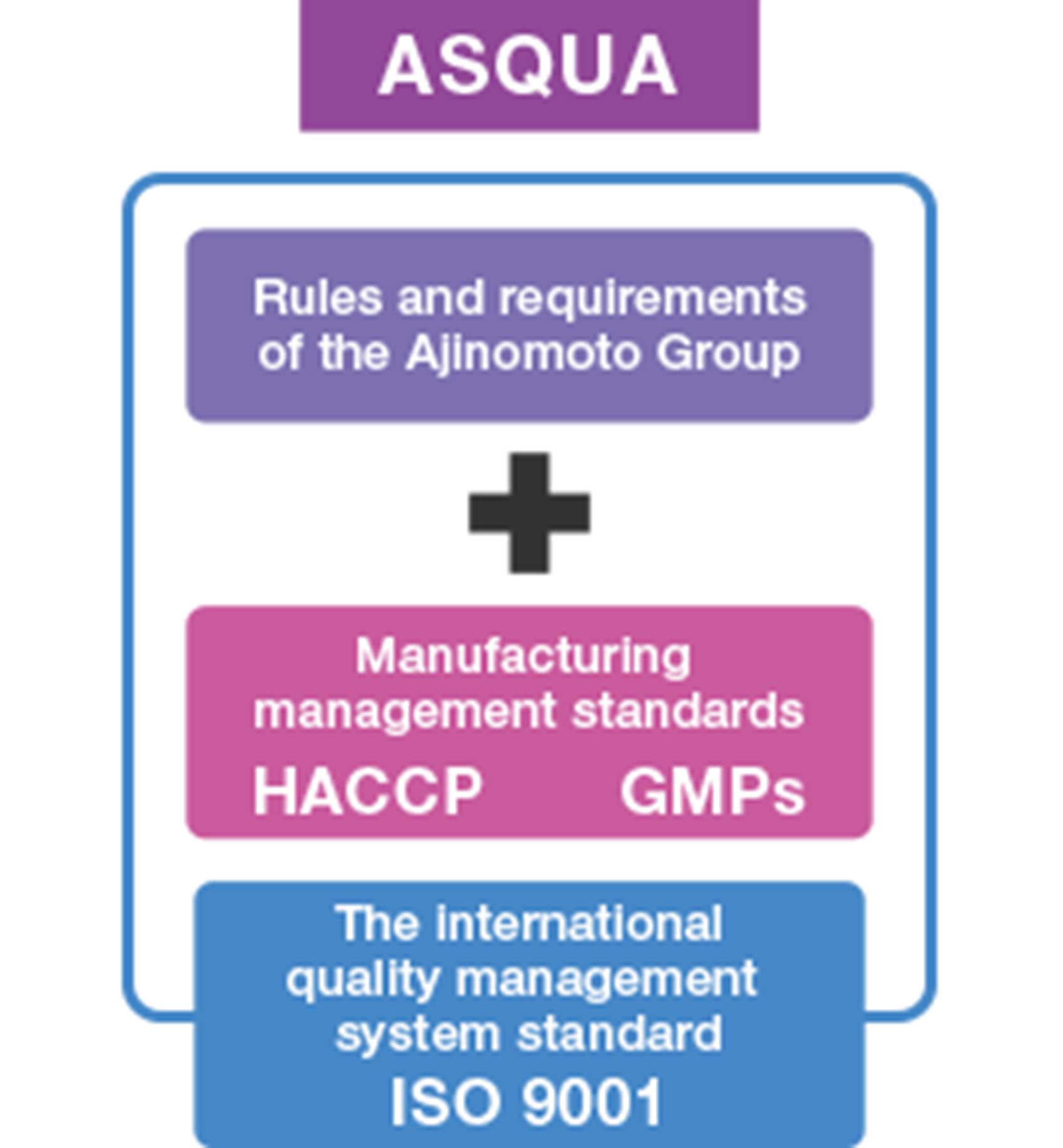
Established in 1997, ASQUA is the Ajinomoto Group’s own quality assurance system. It is based on ISO 9001, the international quality management system standard, as well as manufacturing management standards like Hazard Analysis and Critical Control Points (HACCP), a food hygiene management standard, and good manufacturing practices (GMPs).*1
The system also incorporates the Group Shared Policy on Quality, Ajinomoto Quality Assurance Regulations, Regulation for Quality Assurance, Quality Standards, and other rules and requirements established by the Group or each internal organization. With ASQUA, the Group carries out painstaking quality assurance activities worldwide, from the procurement of raw materials to the sale of products, always pursuing even higher quality manufacturing. Customer requests and expectations are also promptly utilized to improve products, services and business operations.
*1. Standards relating to manufacturing management, which have been adopted for products.
ASQUA components
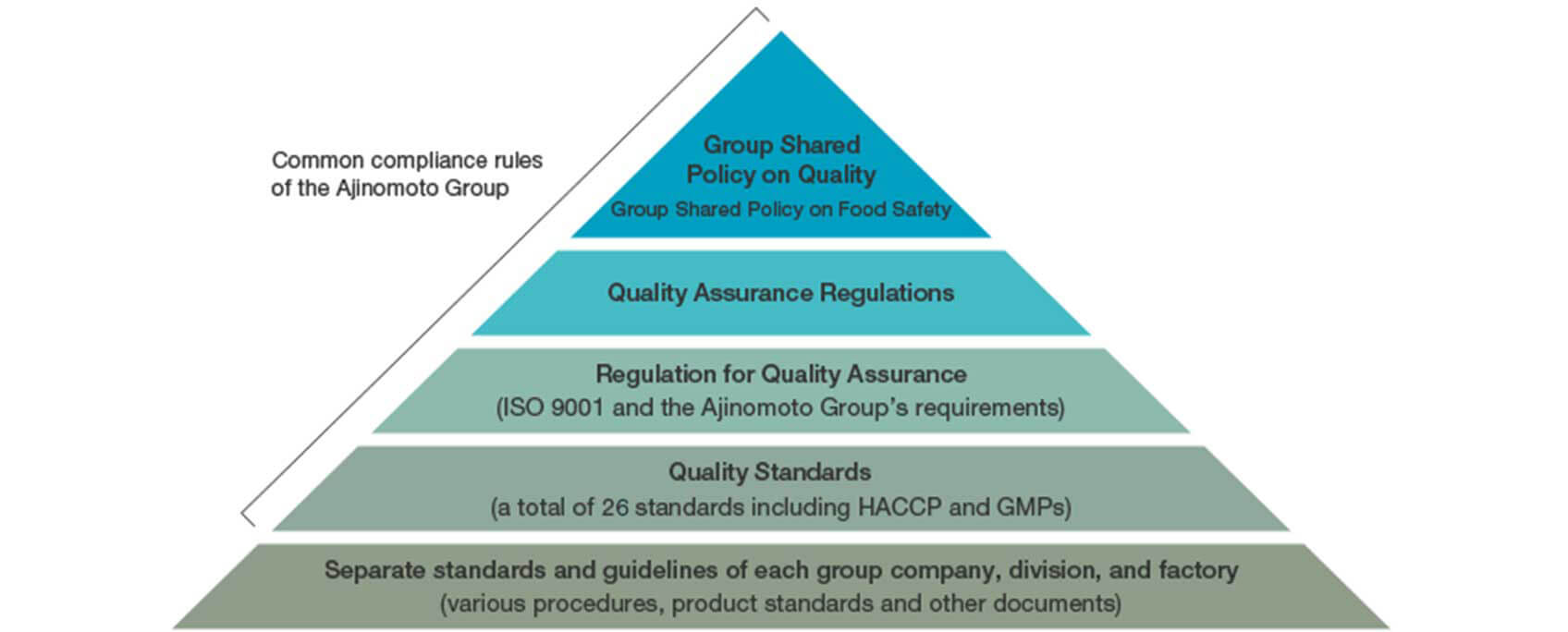
Ajinomoto Group's Quality Standards
The Ajinomoto Group’s Quality Standards are designed to ensure that products meet the level of quality expected of the Ajinomoto Group’s brand, and are strict standards covering a wide range of areas including training, labeling, packaging, and traceability and so on.
Ajinomoto Group's Quality Standards (examples)
Standard for Quality Assessment
Standard for Halal Control*2
Standard for Kosher Control*3
Standard for Product Labeling
Standard for Quality Control of Ingredients
Standard for Safety and Sanitation of Food Packaging Materials
Standard for Food GMP
GMP Standard for Pharmaceutical Drug Products
Standard for Food Safety Management System (including HACCP)
Standard for Quality Control of Subcontracted and Procured Products
Standard for Responding to Complaints
Standard for Determination of Responding to Quality Emergencies
Standard for Food Defense*4
Standard for Traceability
Standard for Handling of “Voice of Customer”
Standards for Reflecting “Voice of Customers”
*2. Foods permissible to eat under Islamic dietary restrictions.
*3. Foods permissible to eat under Jewish dietary restrictions.
*4. Measures to prevent the intentional introduction of foreign matter into food products. The Group carries out monitoring at every stage from raw material procurement to product sales, in order to prevent anyone from adding poisons or other substances to food products.
Organizational framework for ASQUA implementation
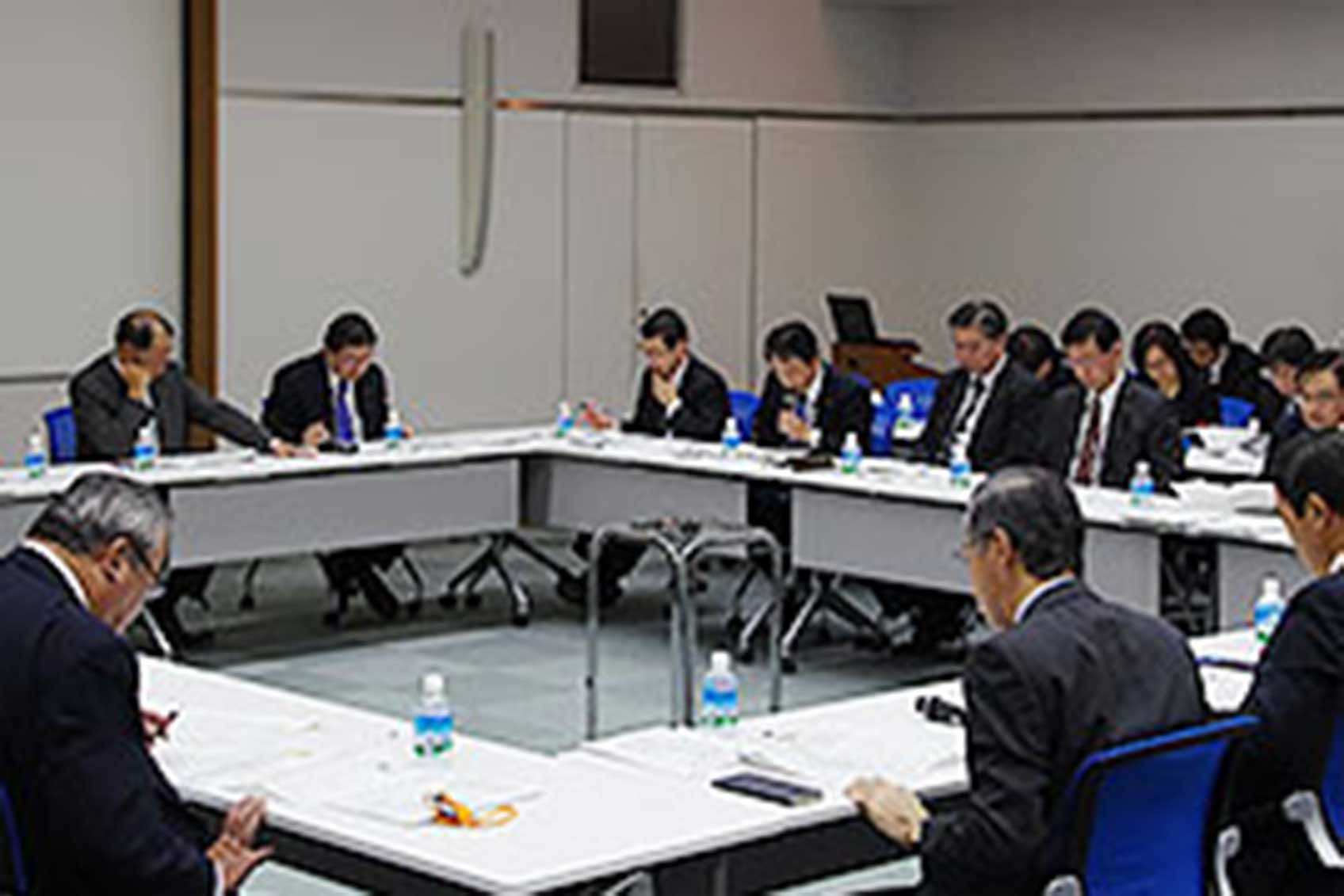
Comprised of members of senior management and reporting to the Management Committee, the Quality Assurance Committee is the highest body for quality assurance in the Ajinomoto Group. Considering customer feedback, it drafts basic policies and plans relating to the Group’s quality assurance, and after approval by the Management Committee, promotes their implementation at group companies worldwide. Every six months, the Quality Assurance Committee reviews the status of policy and plans implementation throughout the Group.
This framework ensures that everyone—from top management to frontline employees working in production and sales— maintains a strong awareness of product quality and a total commitment to providing safe products that are worthy of consumer trust.
ASQUA implementation system
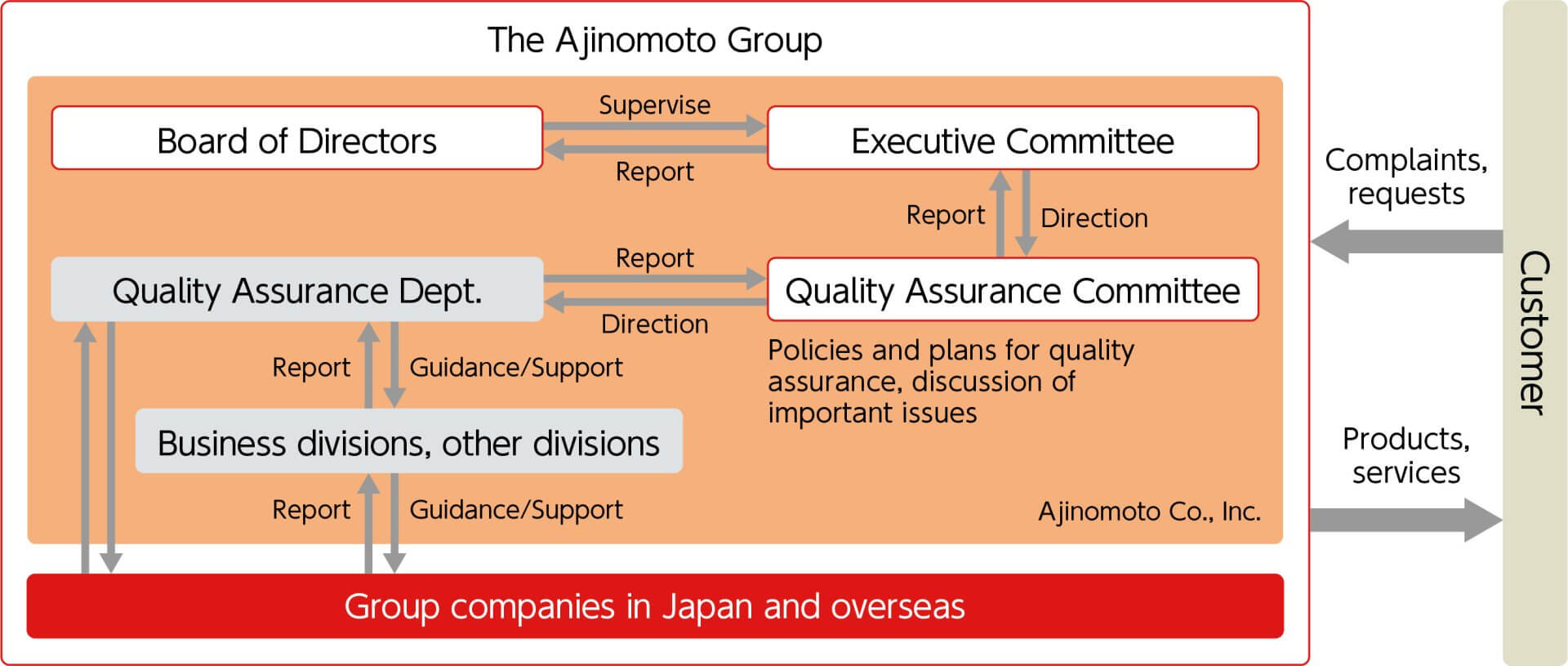
Obtaining third-party certification
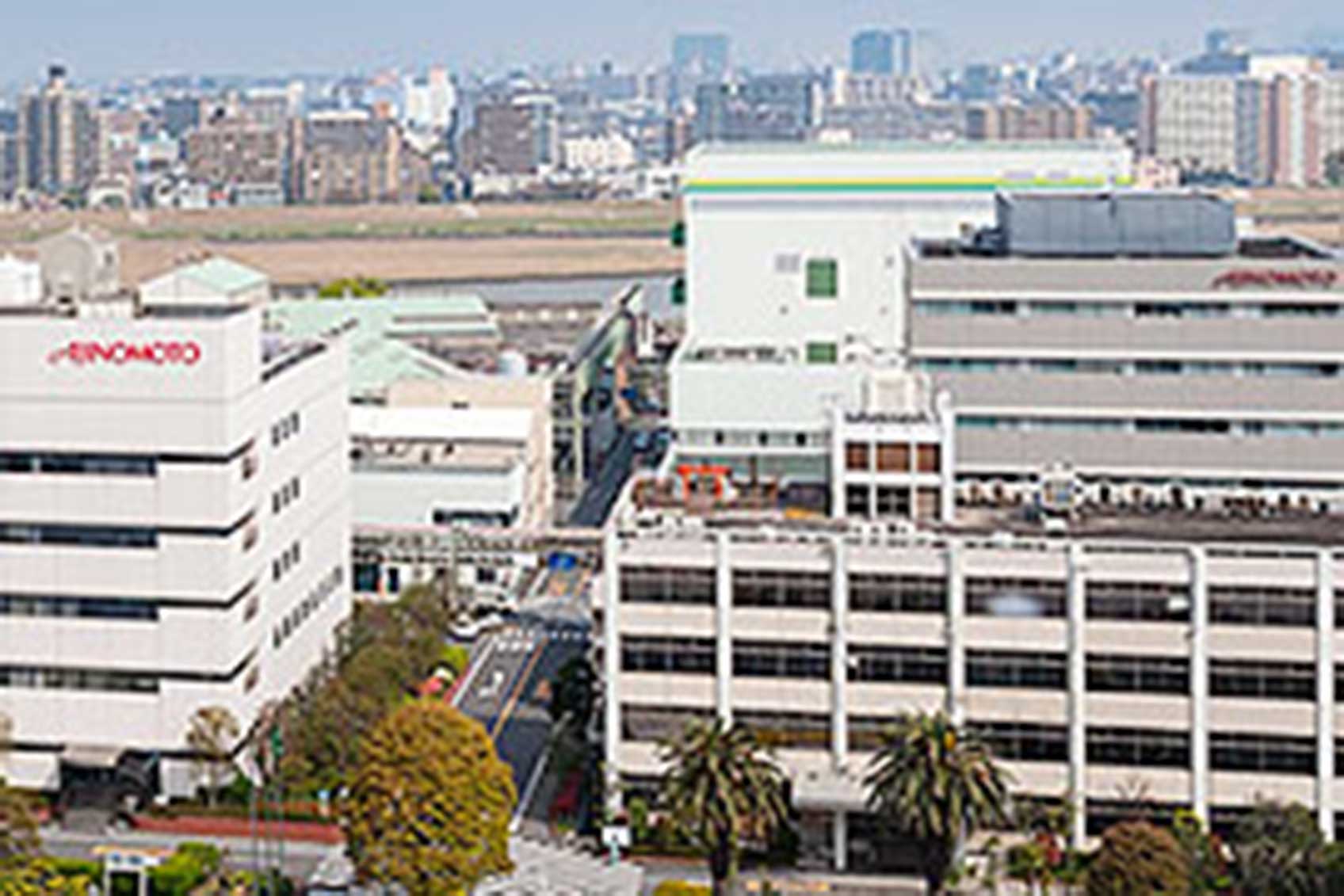
The Ajinomoto Group is working to obtain third-party certifications in ISO 9001. All certified group companies and sites of the Ajinomoto Group is maintaining their ISO 9001 certifications. The Group is also advancing to obtain Food Safety System Certification (FSSC) 22000*5 at multiple manufacturing sites from the Global Food Safety Initiative (GFSI) in accordance with customers’ requests.
*5. A standard enacted by the GFSI created by merging the ISO 22000, the international standard for food safety management systems, and PAS 220, a certification program of food safety for food manufacturers.
Human resources development to raise quality assurance levels
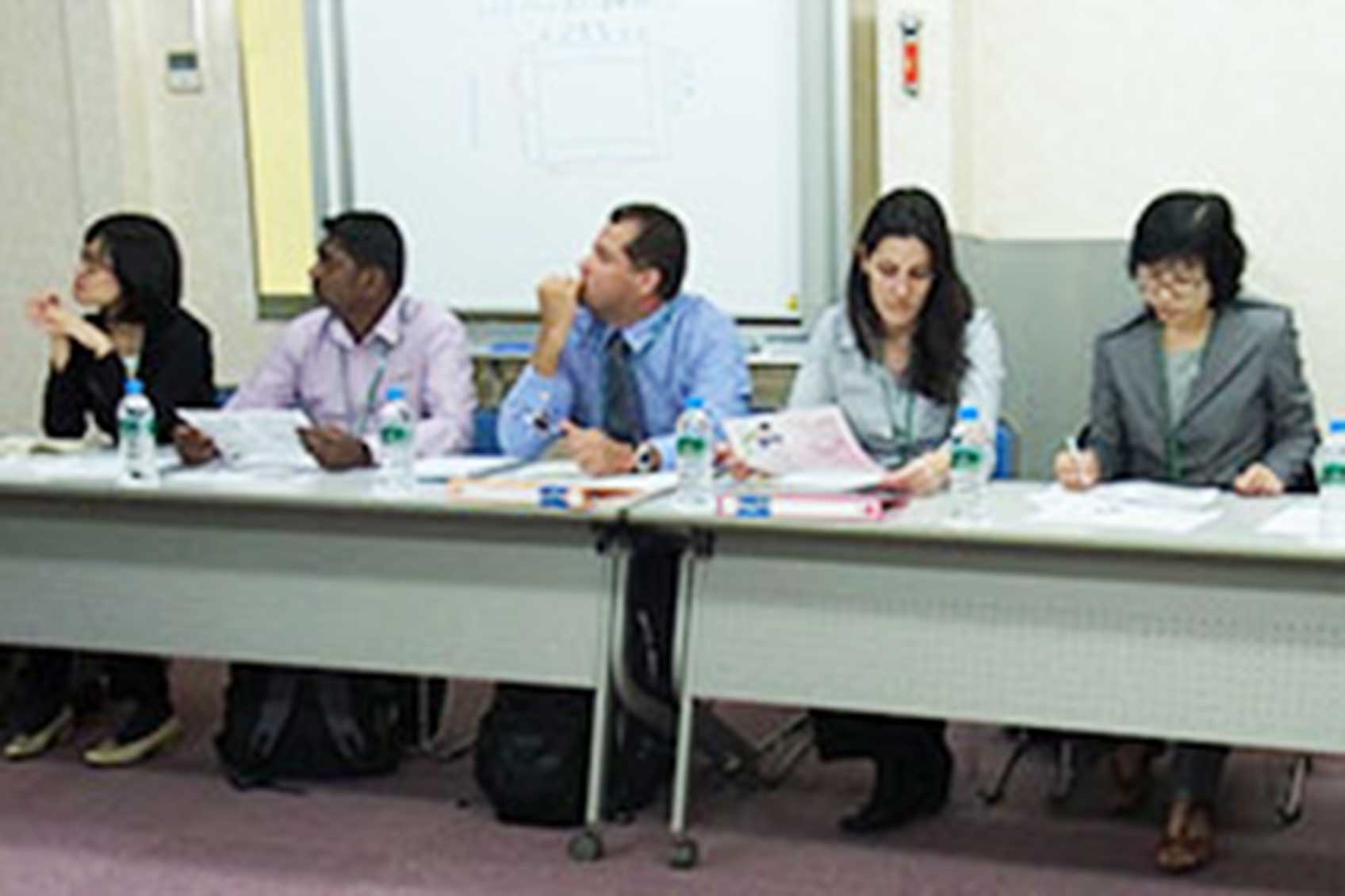
The Ajinomoto Group leverages its human resources development programs to further improve quality. Each year, the Group reviews its quality training, and creates programs that meet the needs of each organization and company. The programs are then implemented according to a plan.
Quality assurance education system and program examples
General training
Group-wide
Ajinomoto Management and Technical Conference on Quality
Ajinomoto Co., Inc.
Training for Japanese staff posted overseas (ASQUA standards)
Compliance training (quality assurance activities)
Specialized education
Group-wide worldwide
Quality Management System (QMS) training course
ASQUA School (using e-learning)
Ajinomoto Co., Inc.
Quality assessment study session
Quality audit study session*6
Group-wide in Japan
Top management study session on quality
Customer satisfaction training program
ISO 9001 internal auditor education (acquisition of new qualifications)
Quality audit seminar
Study session on food product labeling
Briefing on trends in government initiatives on food, etc.
Individual sites
Implementing a variety of education programs relating to quality in areas including ISO 9001 standards, and various types of GMP
*6. Training for the purpose of improving knowledge and sharing expertise relating to quality assurance, with a focus on the Ajinomoto System of Quality Assurance (ASQUA).
